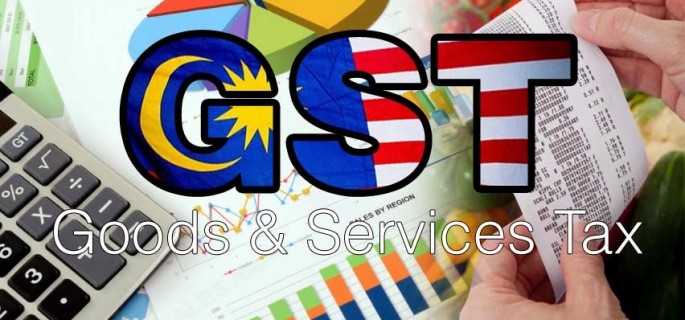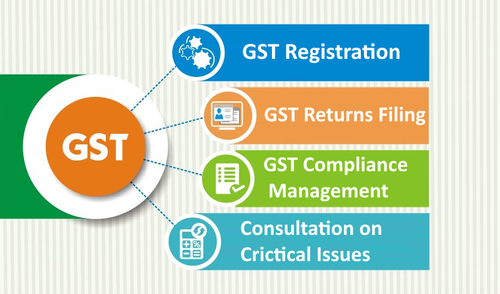Improving Your Singapore GST Registration: A Detailed Approach
Improving Your Singapore GST Registration: A Detailed Approach
Blog Article
The Ultimate Guide to Simplifying the GST Enrollment Refine and Requirements for Small Service Owners

Understanding GST Basics
To realize the basics of the Item and Solutions Tax (GST) system, small business owners need to first comprehend its underlying concepts and implications. Under the GST regimen, services are called for to register and accumulate tax on part of the government, making sure openness and compliance.
One of the crucial concepts of GST is input tax credit score, which allows companies to claim credit rating for tax obligations paid on their purchases. Comprehending these fundamental concepts is crucial for small business owners to navigate the complexities of the GST system and guarantee compliance with the regulation.
Qualification Standards for Enrollment
Having developed a foundational understanding of GST concepts, small business proprietors have to currently satisfy details eligibility requirements to continue with the enrollment procedure (Singapore GST Registration). Companies that were registered under the previous tax obligation regimen (VAT, service tax, etc) are also mandated to register under GST. Farming companies that only provide produce out of primary manufacturing are excluded from GST registration.
Papers Needed for GST Registration

Simplified Registration Process Actions
Adhering to the collection and verification of the requisite papers, the registration process for GST can be browsed with a collection of simplified steps designed to help with efficient conformity for small company owners. The very first step entails going to the GST site and picking the 'New Registration' option. Ultimately, the applicant has to fill out Component A of the GST REG-01 type with details such as frying Recommended Site pan, mobile number, and e-mail address to acquire an OTP for verification. Once the OTP is obtained and entered, a Temporary Recommendation Number (TRN) is generated for more proceedings. The following step needs filling out Component B of the kind with required business information, uploading supporting records, and completing the confirmation process making use of DSC or EVC. Finally, upon effective confirmation, an Application Reference Number (ARN) is provided, indicating the conclusion of the GST enrollment process. By complying with these streamlined actions, small company owners can properly sign up for GST and ensure compliance with tax obligation laws.
Tips for Ensuring Conformity
To preserve regulative adherence and operational integrity, persistent oversight and positive procedures are essential in making certain conformity with GST needs for local business proprietors. Little organization proprietors must stay updated with GST regulations, submitting target dates, and any kind of adjustments in tax obligation prices to prevent charges and preserve a great standing with tax authorities. One essential pointer for conformity is to keep accurate and thorough documents of all transactions, consisting of invoices, receipts, and expenditures associated with GST. Regularly integrating monetary records with GST returns can aid in determining and fixing any disparities quickly. In addition, conducting regular internal audits or seeking specialist assistance can make certain that the company is adhering to all GST rules properly. It is additionally important for small company proprietors to purchase GST-compliant bookkeeping software program that can improve the tax declaring procedure and minimize errors. Last but not least, attending GST understanding workshops or training programs can boost understanding and compliance with GST policies, eventually profiting the business over time.
Conclusion
Finally, small company proprietors have to understand the basics of GST, meet the see this website eligibility criteria, gather needed records, and adhere to the streamlined enrollment procedure steps to make sure conformity. By simplifying the GST enrollment procedure and needs, small company proprietors can prevent charges and run their organizations efficiently within the lawful structure - Singapore GST Registration. It is browse around this site important for small company owners to stay certified and educated with GST policies to maintain an effective organization procedure
Small organization owners looking for GST enrollment should guarantee they gather and send the required documents to finish the registration procedure effectively. The documents needed for GST registration typically consist of evidence of service registration or incorporation, FRYING PAN (Permanent Account Number) card of the company address, entity and identity evidence of the promoters/partners/directors, photographs, address evidence of the area of company, financial institution account statements or canceled cheques, and consent forms. Going to GST recognition workshops or training programs can enhance understanding and compliance with GST guidelines, inevitably benefiting the service in the lengthy run.
By simplifying the GST registration procedure and requirements, small service proprietors can avoid charges and run their businesses smoothly within the legal structure. It is essential for little service owners to stay compliant and educated with GST policies to keep a successful business procedure.
Report this page